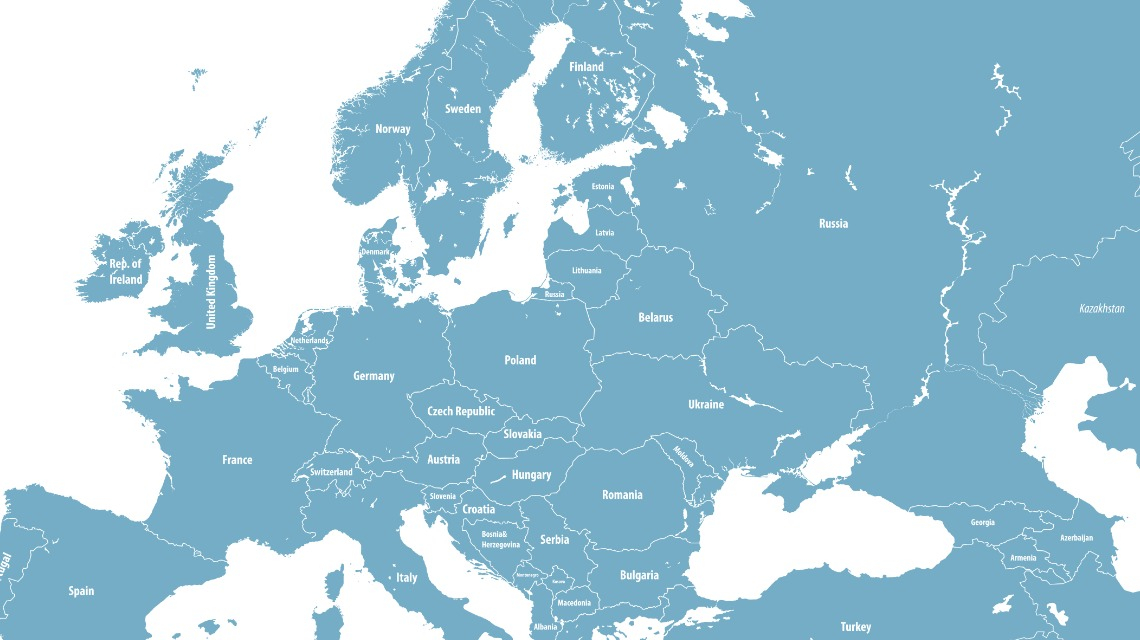 CSUDH Associate Dean of International Education and Senior International Officer Hamoud Salhi discusses the underlying geopolitical causes that have led to the current Russia-Ukraine conflict.
CSUDH Associate Dean of International Education and Senior International Officer Hamoud Salhi discusses the underlying geopolitical causes that have led to the current Russia-Ukraine conflict.
Salhi specializes in international politics and comparative politics with an emphasis on the Middle East and Northern Africa, terrorism and counterterrorism, and political change in the Third World.

Russia calls the situation in Ukraine a “military operation,” the U.S. calls it an “invasion,” and the public at large and media refer to it as a “war.” What’s in a name? Why are there such differences?
If you watch State Department daily briefings or White House press conferences, you get the impression that this is not a war, but rather an armed conflict–a humanitarian disaster. During his State of the Union Address, President Joe Biden spoke passionately, and at times angrily, about the atrocities committed against Ukrainian civilians. However, he mentioned “war” only once, and that was to describe “Putin’s war” (Biden’s words) in Ukraine, which may not necessarily mean Biden is referring to the current war–the one unfolding right now–because this is not the only war Putin has had in Ukraine.
Russia frames the current situation as a military operation conducted to protect Russia’s legitimate borders. This distinction has become a serious question: it prompted legal scholars to ask whether war is still relevant in international law. Some scholars declared the concept dead, legally irrelevant, and even in decline. However, this is not a mere academic exercise: it has significant practical implications. By calling its intervention in Ukraine a “military operation,” Russia can claim that it is acting within international law and not in flagrant violation of its principles.
Since 2014, Russia has used a version of Customary International Law to insist that Russia has a legitimate right to intervene in Ukraine in the same way the West intervened in Kosovo on March 24, 1999. Russia, in its attempt to circumvent international law, is using procedure (the use of military force) to justify its illegal actions against Ukraine’s state sovereignty.
Per the United Nations Charter, Russia is now engaged in war. But labeling the conflict in Ukraine a war could mean shutting off all contact and relations with Russia. I don’t think the U.S. is prepared to escalate the conflict, because it wants to leave the door open for a political solution. Shutting the door invites further escalation and possibly a third world war.
When did this war begin? We know Russia started sending troops into Ukraine on Feb 24, but some think it started long before.
In the West, this war was launched on February 24, 2022 by Vladimir Putin against Ukraine–a nation whose only crimes are being an emerging democracy, pro-West, and protected by the North Atlantic Treaty Organization (NATO). However, a purist could label this as the Second Ukrainian War. Russia annexed Ukraine’s Crimea in February 2014.
Russian leadership views the current conflict as starting long before this year. Some go as far back as 2006, when the U.S. started drawing Ukraine into NATO. Putin interpreted this gesture as directly aimed at Russia. To Russia, the mission of NATO ended with the collapse of the Soviet Union on December 26, 1991. As a result, Putin interprets NATO’s ongoing existence as a direct threat against Russia’s national and strategic interests.
What are the root causes of this war?
It is important to view this war in its proper context. This is about realpolitik–the national interests of two major superpowers who failed to coexist in Europe because of their diverging and conflicting views. In the middle of these superpowers is Ukraine, which holds a strategic position as a buffer zone for both the U.S. and Russia.
Land-wise, a neutral Ukraine gives Russia a strategic zone to deter what it perceives as a U.S. and European security threat. Russia shares a nearly 1,500-mile border with Ukraine and sees this region as an extension of its national interest. The U.S. has comparable strategic interests in Ukraine and has invested heavily in this region to deter what it sees as Russian imperialism.
According to scholar John Mearsheimer, Ukraine became a de facto member of NATO by December 2021, meaning the U.S. crossed a red line set by Russia. As we know, the U.S. response has been that Ukraine is a sovereign state and Russia cannot dictate how Ukraine aligns itself with its neighbors and internationally.
When will this war end? Will a political solution come soon?
I think we are here for a long while. We are so deep in this conflict that everyone is now looking for a settlement to preserve the status quo or to use a stalemate to regroup. A political solution is possible only to the extent that Putin gets security guarantees, which means a neutral Ukraine. The U.S. is betting on the Ukrainian resistance, and if all else fails, dragging Russia into a protracted conflict that would exhaust its resources and undermine it internationally.








